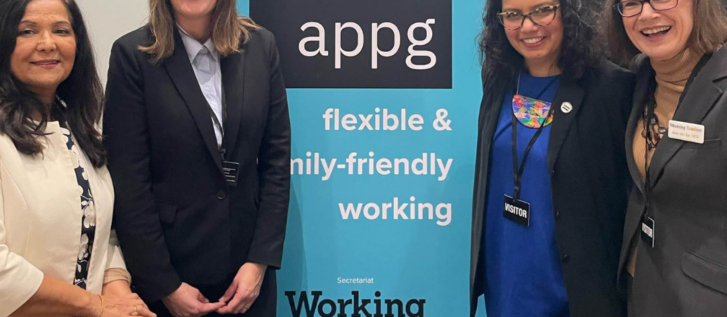
Exploring careers in construction
Construction is a huge industry that spans everything from architecture and house building...read more
James Cornwell had a high flying career – literally – but he walked out when his employers weren’t interested in flexible working

They say millennials want more flexibility from work. James Cornwell is an extreme example of that.
When his company stonewalled his request for flexible working he quit.
Instead he set up a company offering and managing high-end lets in London and in the south of France. And flexibility was baked into the new business from the off.
“I probably work as many hours as I did in the job I’d had enough off,” he laughs, “but now it’s up to me when I do them. And I see my son an insane amount more than I used to.”
He’d been headhunted to join a start-up looking to break into the lucrative world of private jet brokerage. They wanted aggressive salespeople and James claims he delivered in spades. But when baby Finn came along and he wanted out of the long hours culture the firm wasn’t interested. “I was let down,” he explains. “I was offered just the statutory two weeks paternity leave plus a week’s holiday and my manager told me to take a fourth week and he’d turn a blind eye. But that just left me very anxious when my baby should’ve been the priority. After I went back and I couldn’t get flexible working I quit.”
Setting up on his own at Bloomsbury Estates offered the opportunity to work differently. And it allows him to be a more effective part of the family.
“Finn is breastfed and that can leave me a bit redundant in the night and it leaves my wife Naianna sleep deprived. Working flexibly means I can start a bit later and she can catch up on a few hours sleep that allows her to function and can be the difference between her slipping into a depression and staying healthy.”

It’s also made James a better dad. He looks after Finn one day a week, giving him crucial hours to bond with his son and gain confidence in parenting. And that involvement benefits his own mental health.
He adds, “I’ve got a friend with an eight-month-old and he’s really struggling. It’s easy to feel a bit of a spare part in that first year, you’re not going out as much, your wife is focussed on the baby, you’re not having as much sex or generally doing the fun stuff you used to. And it can feel wrong to complain when the mum is probably feeling the impact even more. Working flexibly allows me to be involved, it’s been a learning curve but I’ve had the time to do that.”
He also reckons it’s made him a better worker. “I don’t care as much what other people think. I have my way of doing things and I’m confident that it works.”
Consequently his employees work flexibly too. One person works three days a week doing admin and bookkeeping. “As long as the workload is done she can do it any time and any place,” he explains. “For an employer flexible working is all about trust and looking at the outcomes, not how long someone is sat at a desk.”
As he looks to expand he’s considering all the different ways of flexibly working before taking on more employees – contracting for a limited time, part-time and such like.
There is downside to flex however. “I’m always on,” James cringes. “It’s undoubtedly my biggest struggle. There are detriments to flexible working and that is one of them.”
However he has a high-tech solution – he recently invested in a swanky Apple Watch, expensive but worthwhile he reckons. “We have properties listed on 42 platforms and I’m a great believer in a quick response, there’s been research that if you reply to an enquiry within five minutes rather than within 10 minutes the chances of converting that into a sale are 80% higher. And those enquiries can come at any time of day or night. But with the watch I can see what it is and prioritise accordingly. When I had to get my phone out to see what the message was I’d invariably get caught up in something else on the phone and the time would just go. Now I can be with Finn and check messages just as if I’m checking the time. It’s helped me a lot.”
In fact flexibly working in general has helped James and his family, that’s why he’s so keen to spread the message.
“We’re all just a lot happier,” he smiles.

New flexible working regulations came in over the weekend. But what do they mean and how does the process work for making a request for flexible... read more

HR expert Alan Price outlines the legislative changes coming up in April that will help working families. read more

A new parliamentary group aims to push the conversation about flexible working further. read more

Will we all be working in the metaverse in the future, what are the implications and are our children equipped for a more virtual world of work? read more